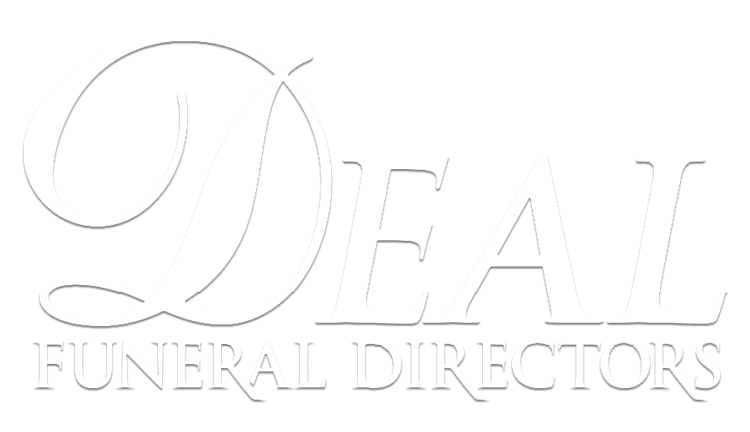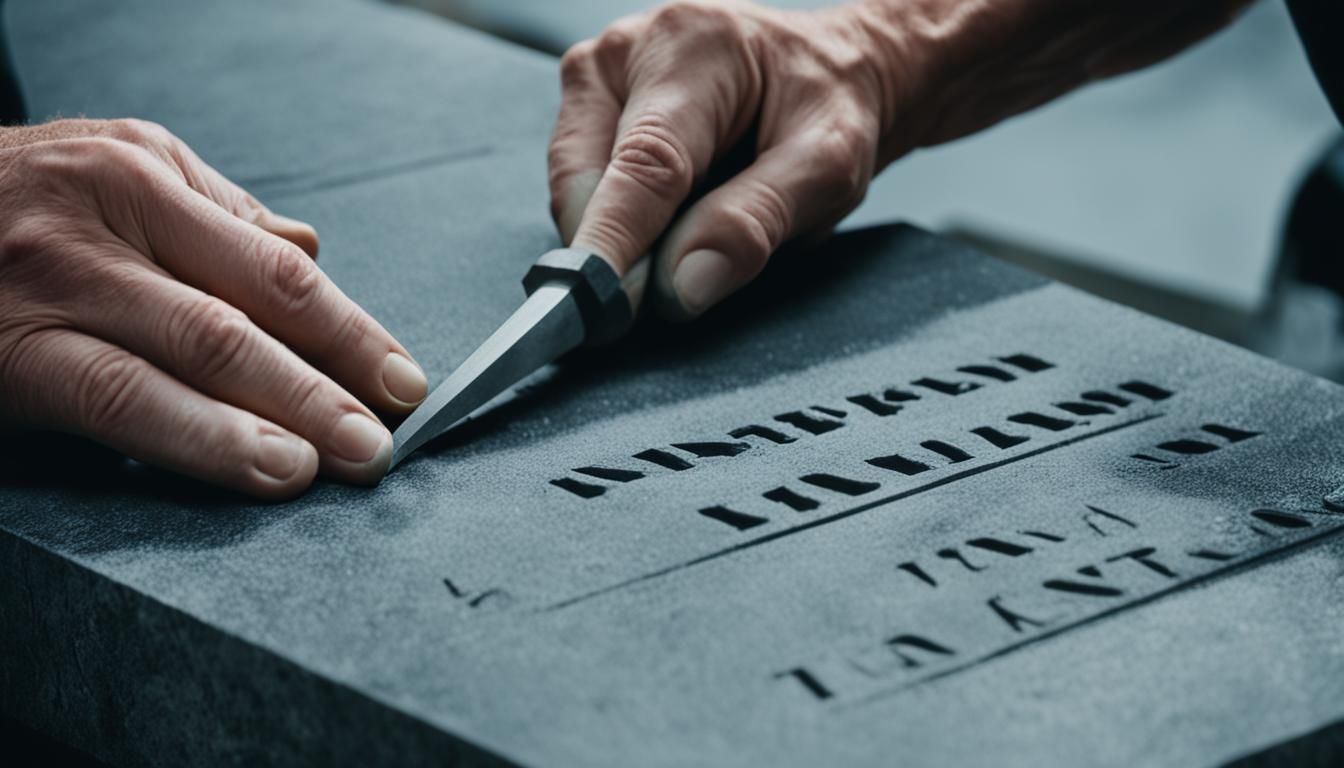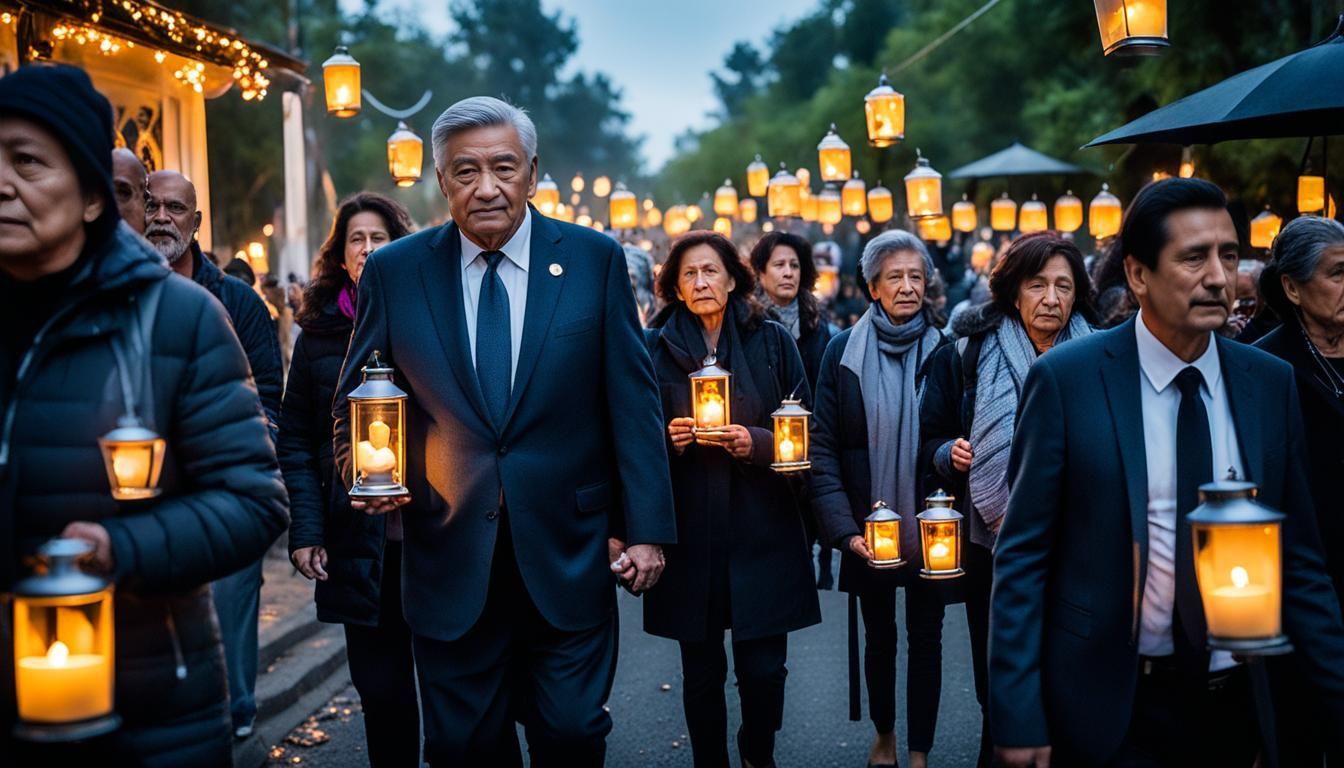Essential Steps to Organize End-of-Life Documents
Essential Steps to Organize End-of-Life Documents
Have you ever thought about how ready you are for the unexpected? Many of us don't like to think about end-of-life plans. But, having your estate paperwork sorted brings peace of mind. Your wishes will be respected during tough times. At Deal Funeral Directors in Statesboro, Georgia, we stress the importance of keeping all vital documents together. Our support helps ease the load on your family, though we don't offer hospice or make cemetery markers.
Future planning isn't just about wills and money. It's about careful end-of-life plans to ensure your healthcare and other wishes are followed. By organizing legal documents like powers of attorney and advance directives, everyone's life gets easier. Begin with a will, keep it updated, and store everything safely.
The NIA’s new email series, Ready, Set, Plan! A Weekly Guide to Advance Care Planning, is designed to kickstart your planning. Signing up and chatting about it with your doctor during Medicare’s wellness visit is a smart move. This method ensures your documents are ready, not just in emergencies but also at life's end. It makes sure your wishes are known and documents easy to find.
Key Takeaways
- Being prepared with estate planning paperwork provides peace of mind.
- The NIA's email series helps guide advance care planning over seven weeks.
- Appointing a durable power of attorney is a critical step in end of life preparation .
- Regularly reviewing and updating your plans ensures they stay relevant.
- Communicating your wishes with loved ones and legal professionals is essential.
- Storing documents in a secure, accessible location makes it easier for survivors.
- Informing a trusted individual or lawyer about the location of your important papers helps ensure wishes are honored.
Importance of Organizing End-of-Life Documents
Organizing end-of-life documents is a key step in planning for the future. It makes sure your final wishes are known. It also helps your loved ones during tough times. By putting steps to organize end of life documents into action, we can guide our care and what happens to our stuff.
You should gather several important papers. These include a will, durable power of attorney for finances, and a living trust. A will explains who gets your stuff and who takes care of any dependents. The durable power of attorney lets someone you trust handle your money if you can't. A living trust manages your property when you're not able to.
There are also advance directives like a living will and a durable power of attorney for health care. They tell doctors what care you want if you can't speak for yourself. Health care proxies make sure someone you trust can make health decisions for you.
Keeping a full list of financial info is really important. It should have details about your income, stuff you own, insurance, bank info, investments, taxes, debts, and safe deposit box. This list helps manage your end-of-life paperwork and keeps your finances smooth.
For personal info, you'll need details like your legal name, social security number, birth and marriage certificates, and contact info. This makes it easier for your loved ones to find what they need.
It's good to check these documents every year or after big life changes. A lawyer can help set up some of these documents. But, you can do many advance directives without legal help.
Talking about organ donation and funeral wishes with your family is key. Sharing what you want makes sure your final wishes are followed. You can sign up for organ donation when you renew your driver's license or online. Let your family know whether you want a burial or cremation.
Using resources like NIA’s Ready, Set, Plan! A Weekly Guide to Advance Care Planning can help. Well-organized documents make managing end-of-life plans easier. They ensure your wishes are followed and support your loved ones.
Key Documents You Need
Getting ready for the end of your life means gathering all important papers together. This makes sure your wishes are clear. It also helps your family feel at ease.
Legal Documents
It's vital to sort out legal documents for the end of life. These include:
- A last will and testament declaring how to divide your things.
- Durable powers of attorney for finances and health care. They pick trusted folks to decide for you if needed.
- Living trusts to handle your belongings while you're alive and after.
- Advance directives, like living wills and Do-Not-Resuscitate Orders (DNR). They tell doctors your health care wishes.
Financial Records
Your money details are a big part of your estate papers. This section has:
- Info on what you earn, own, and owe.
- Data on insurance and bank accounts.
- Details about investments, taxes, and debt.
- Life insurance papers to cover funeral costs and other last expenses.
Health Information
Medical records are also key when organizing. You should have:
- Lists of medications and doctor's orders.
- Health insurance specifics.
- Advance directives and medical powers of attorney.
- Emergency contacts and a form allowing others to see your medical info.
Personal Information
Your personal details finish the list. Make sure these are easy to find:
- Your legal name and Social Security number.
- Your job history and contacts in your faith community.
- How to reach friends and family.
Remember to check your plan every year or after big life changes. Keep all papers safe from fire and water. Getting legal help and using guides like the NIA's Ready, Set, Plan! series is also wise.
Steps to Organize End of Life Documents
Getting your end-of-life documents in order might seem tough. But with a step-by-step method, you can handle it. Here's how to begin:
Create and Store a Will
First, write a will. This is key for end-of-life planning. It shows how to split up your things after you're gone. Make sure it clearly states your wishes to avoid any fights. Once it's done, keep the will safe. Use a fireproof and waterproof safe for the safe storage of important documents.
Appoint a Durable Power of Attorney
Choosing a power of attorney is a must. This is so someone you trust can decide for you if you can't. A durable power of attorney for finances deals with your money. Meanwhile, one for health care chooses someone to make medical decisions for you.
Gather and Protect Financial Documents
To manage your finances well, gather all important papers. This includes bank info, investments, insurance, and tax records. Keep them somewhere safe to protect them and make sure they're easy to find. This helps others take care of your finances if you're not there.
Communicate Your Plans with Loved Ones
After planning, talk to your family about it. Discuss things like organ donation, your funeral, and medical care. This helps them know and respect your wishes. Open talks can lessen confusion and stress when times are hard.
- Learn more about gathering and protecting your financial documents here
- Get tips on creating and storing wills
NIA’s new email series, Ready, Set, Plan! Is a great way to plan your future healthcare. It lasts seven weeks.
Don’t forget to check your end-of-life plans often. Do this yearly or after big life changes. This keeps them current and matching what you want.
Conclusion
Organizing end-of-life documents gives loved ones peace of mind during a tough time. This proactive step makes sure final wishes are honored respectfully. It reduces stress and confusion. The COVID-19 pandemic showed everyone needs to make these plans. It's important for all ages, not just older adults.
Laws for end-of-life documents differ from state to state. They may require things like witnesses and notarization. It's key to know and follow these laws to make sure your documents are valid. Advance directives are crucial. They include living wills, DNR orders, and organ donor cards. They protect you when you can't share your wishes.
Having a power of attorney (POA) is also vital. They make decisions about your healthcare, legal, and financial matters if you can't. A durable power of attorney (DPOA) keeps this in place even if you lose mental capacity. Living wills, DNR orders, and POLST cards make sure your medical care aligns with your wishes.
Deal Funeral Directors in Statesboro, Georgia, understands the importance of these preparations. They don't offer hospice or memorial services, but they help honor your loved one's memory. They suggest local experts for thorough end-of-life planning. This organized planning ensures dignity and care for our wishes and those of our loved ones.
FAQ
What are some essential steps to organize end-of-life documents?
Key steps include creating a will and choosing a durable power of attorney. You should also gather financial records. Plus, it's important to talk about your plans with your family. These actions make sure all your important papers and plans are well-organized. This organization gives you and your loved ones peace of mind.
Why is it important to organize end-of-life documents?
It's critical because it simplifies the process for your loved ones. It makes sure your final wishes are followed. Organizing these documents helps avoid conflicts and gives clear instructions for distributing assets. It covers care preferences and other personal details too.
What key documents should be included in my estate document checklist?
Include legal papers like your will and power of attorney assignments. Don't forget living trusts and advance directives. Also, gather your financial records, health info, and personal details like your social security number. Having these documents in order covers all necessary aspects.
How do I create and store a will effectively?
Start by getting help from a legal expert to make sure it meets legal standards. After it's done, keep the will safely, like in a safe deposit box or fireproof safe at home. Make sure trusted relatives or your power of attorney know where it is.
How should I appoint a durable power of attorney?
Choose a trusted person who can handle your affairs if you can't. They should know your wishes well. Use legal documents to make it official, with help from a lawyer to make sure it's done right according to your state's laws.
What are the best practices for gathering and protecting financial documents?
It's best to keep a well-organized record of your bank and investment accounts. Do the same for your insurance policies and other financial info. Store these documents safely, like in a secure place at your bank or at home. Make sure your family or attorney knows where to find them.
How can I effectively communicate my end-of-life plans with loved ones?
Talk openly with your family and the person you've given power of attorney to. Tell them where you've stored important papers. Give them the details they need to follow your wishes properly. Remember to keep them updated on any changes to your plans.
Source Links
- https://www.nia.nih.gov/health/advance-care-planning/getting-your-affairs-order-checklist-documents-prepare-future
- https://www.osc.ny.gov/retirement/publications/getting-your-affairs-order-and-guide-survivors
- https://seniorservicesofamerica.com/blog/10-end-of-life-documents-everyone-should-have/
- https://www.verywellhealth.com/advance-directives-documents-2615080










